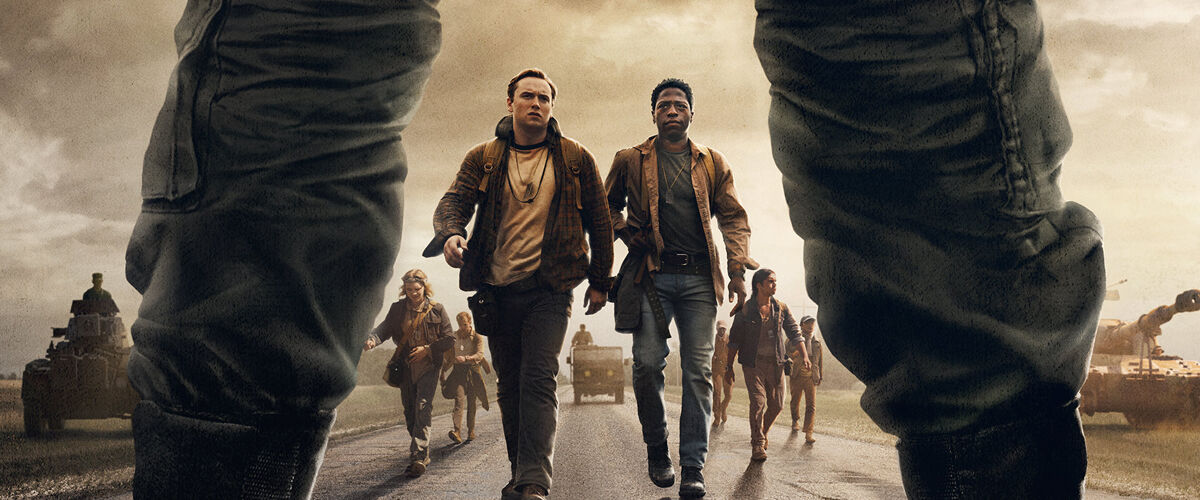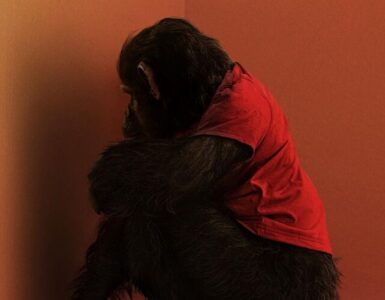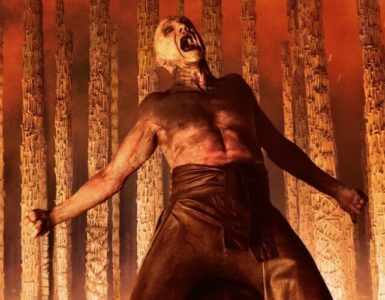Trust Stephen King to take something as simple as walking and spin it into horror dystopian fiction. After all, his “King of Horror” moniker is well-earned, rooted in a fervent exploration of all kinds of fear, from supernatural chills to psychological thrills. The Long Walk, published under his pseudonym Richard Bachman, leans into the latter, weaving despair, hope, and heart into the author’s first written story.
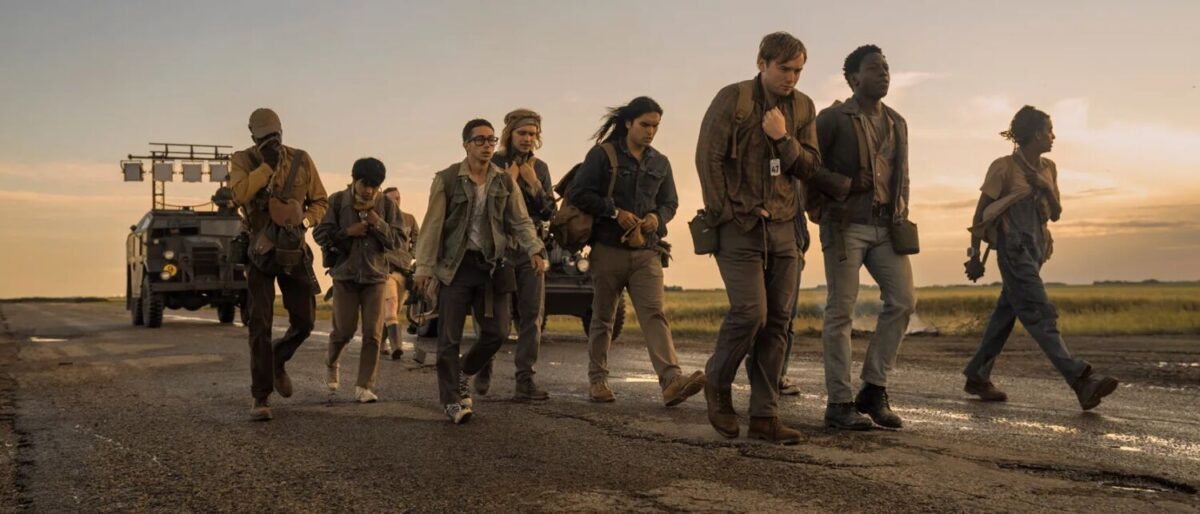
Francis Lawrence’s page-to-screen adaptation seeks to honour the same spirit on the big screen, furnished with some original touches. The straightforward premise remains unchanged – in a dystopian United States ruled by a totalitarian regime, a group of young men enter a gruelling annual walking contest in which a minimum speed of three miles per hour (4.8km/h) has to be maintained, or risk getting verbal warnings if they fall below it for 30 seconds. After three warnings, the slow participant will be executed.
The annual walking tournament lasts until there’s only one survivor left, who can then choose whatever he wants for the rest of his life.
Leading the walkers are Cooper Hoffman (Liquorice Pizza) as Raymond Garraty and David Jonsson (Alien: Romulus) as Peter McVries, joined by an ensemble cast that includes Ben Wang (American Born Chinese), Garrett Wareing (Ransom Canyon), Joshua Odjick (Wildhood), Charlie Plummer (All the Money in the World), Roman Griffin Davis (Jojo Rabbit), Mark Hamill (Star Wars), Judy Greer (13 Going on 30), Josh Hamilton (Maestro), and more. The journey is as bleak and nihilistic as it sounds – reinforced through the notion that “there’s one winner and no finish line”, as a character says at one point in the movie – and Lawrence makes it clear that he understands the assignment. Too well, in fact.
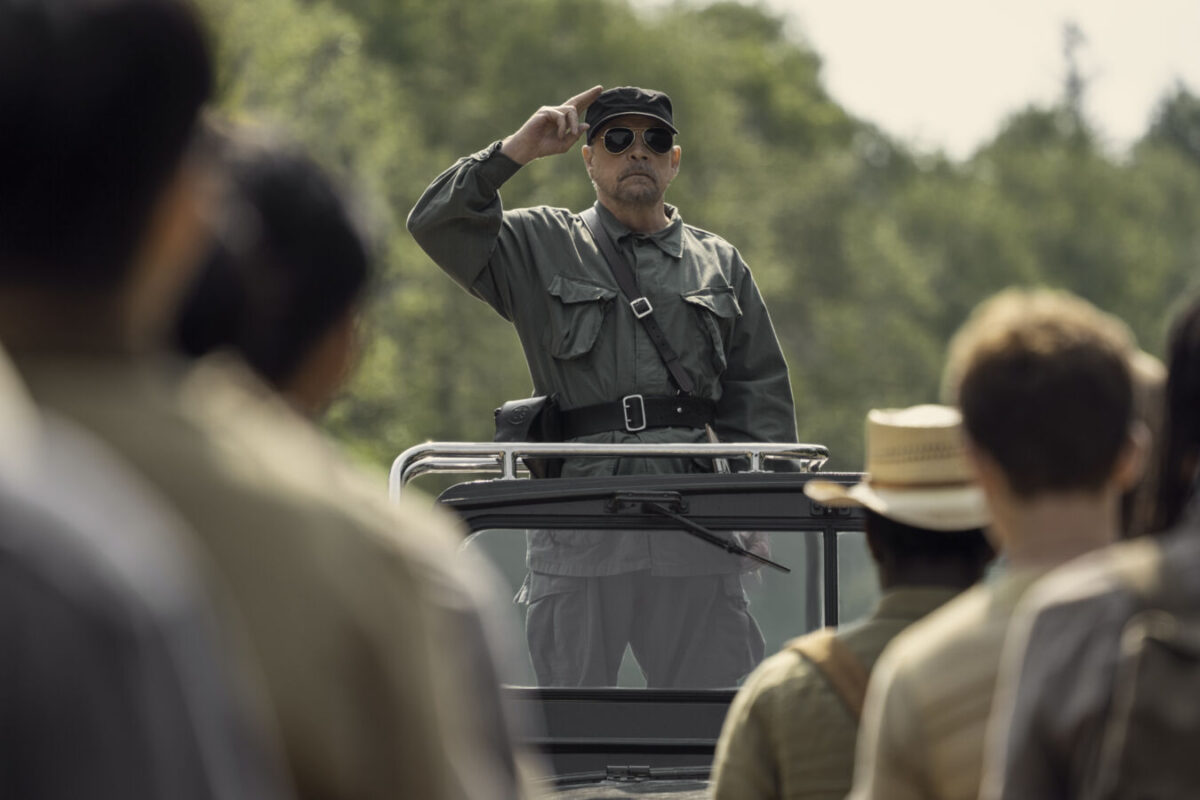
For those well-acquainted with The Hunger Games films, the strong feeling of déjà vu hardly comes as a surprise. Lawrence’s earlier big-screen takes on Suzanne Collins’ novels delivered emotional blows to the gut, and the same gritty, dystopian flavour permeates The Long Walk, from the public broadcasting of the march to the totalitarian regime. The dog-eat-dog spirit grounds the narrative, prompting the question: when death is a looming certainty, why does forging connections matter?
Hoffman and Jonsson, in standout performances, make strides to find out the answer. From their first encounter, the pair is held by a gravitational pull that, under normal circumstances, would bring a smile to one’s face. Here, a bittersweet inevitability punctuates their friendship, conveyed through natural, easygoing on-screen chemistry. Where McVries cuts a confident and earnest figure, Garraty oozes charm and compassion, making him the ideal intermediary for the other participants. As the film progresses, the hidden complexity of their characters starts to show cracks, setting them up for nuanced development, wide-ranging emotions, and existential angst. Two halves of a whole, Hoffman and Jonsson are the spark that fuels the narrative.
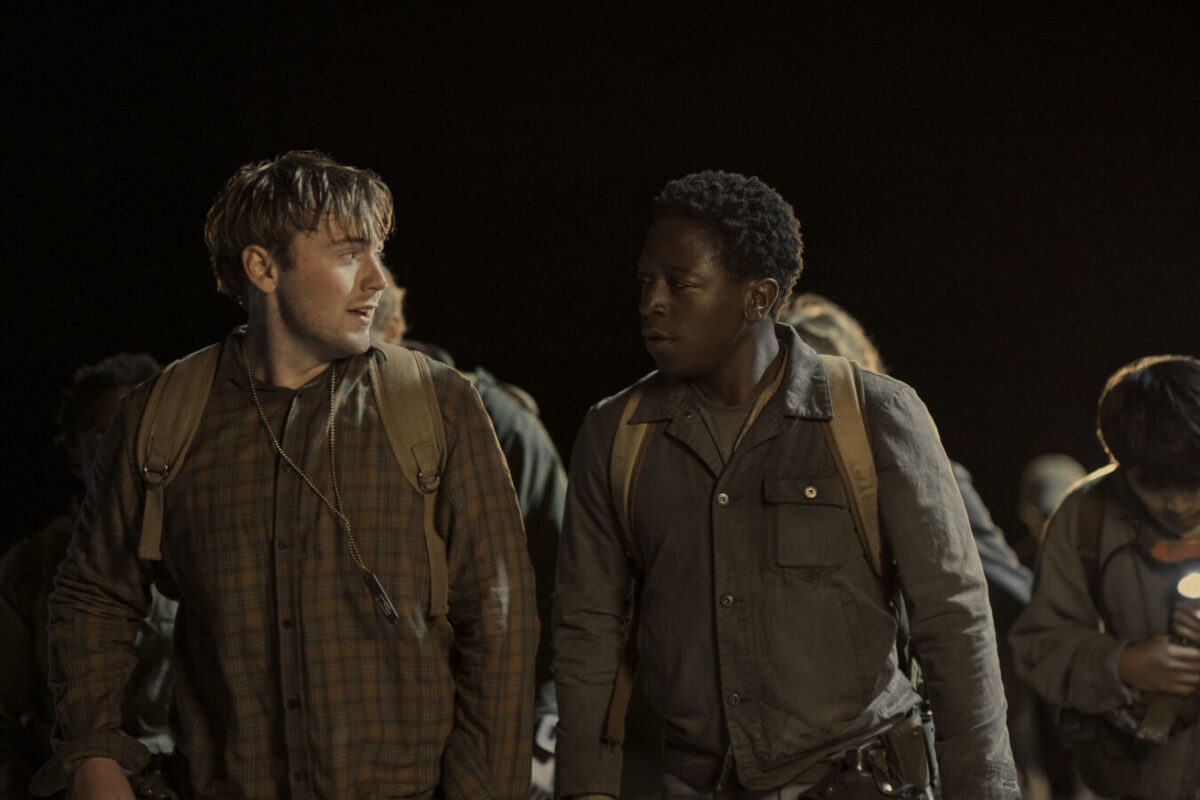
While no fault of their respective actors, some characters lack the luxury of extended screen time – and understandably so, as there’s little reason to invest in them if their demise happens less than halfway into The Long Walk. It’s a common struggle for stories with an ensemble cast, and Hamill’s Major is portrayed as a typical, one-dimensional big bad resembling Big Brother from George Orwell’s Nineteen Eighty-Four, but for what it’s worth, the stars who are given more focus prove competent at commanding attention.
Odjick’s Collie Parker, Wareing’s Stebbins, and Plummer’s Gary Barkovitch, for instance, have the unenviable job of portraying infuriating characters, and each manages to humanise them in a way that compels viewers to look past the antagonism and feel empathy for their eventual fate. The Four Musketeers, trimmed down from eight in the original novel, strike up a sincere camaraderie that echoes the dynamics of battle-worn soldiers, taking the form of Tut Nyuot’s (The Witcher: Blood Origin) Arthur Baker, Wang’s Hank Olson, and Garraty and McVries. Baker’s genial, optimistic disposition serves as a foil to Olson’s brash, sharp-tongued personality, which mellows out from aggravating to refreshing levity over time.
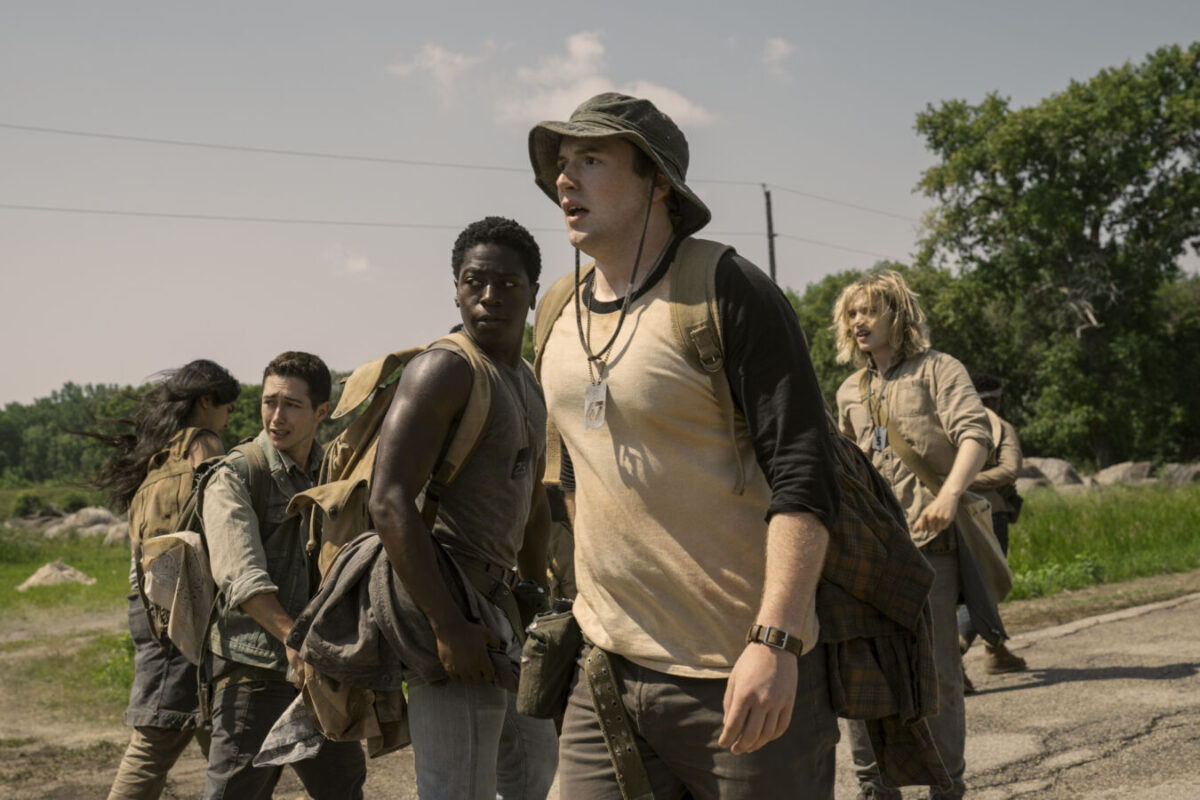
Readers would notice the absence of Scramm, pegged as the hot favourite in the source material, here, and he isn’t the only one. Marking a departure from a beat-by-beat rehash, The Long Walk tweaks various elements of King’s prose in a bold display of creative liberty, and it works to a surprising effect – the thematic exploration still aligns with the messaging in the novel, while newcomers can understand the events in the movie without prior knowledge or understanding. Additionally, the smaller character roster makes it easier to match their faces to a name, especially for audiences who require more time for familiarisation.
The unflinching brutality, too, remains unchanged. The Long Walk doesn’t hold back in its depiction of young, barely grown men as murder fodder, painting long stretches of road with splattered guts, spilt blood, and sour perspiration. For the most part, crackling gunshots snuff out a walker’s last breath, but one particular scene elevates the carnage intensity by having a tank run over the body instead.
There’s also the psychological torment that takes place before the execution. Conveyed through haunting facial and eye expressions captured by the camera, the fear of a failing body is always present. Sometimes, sheer exhaustion is the cause; other times, grave injuries bring dreams to an end, and in one specific instance, bowel movement proves no less deadly – no matter the case, the film makes audiences complicit in the act of observing slaughter, just like the characters themselves (not by choice, of course).
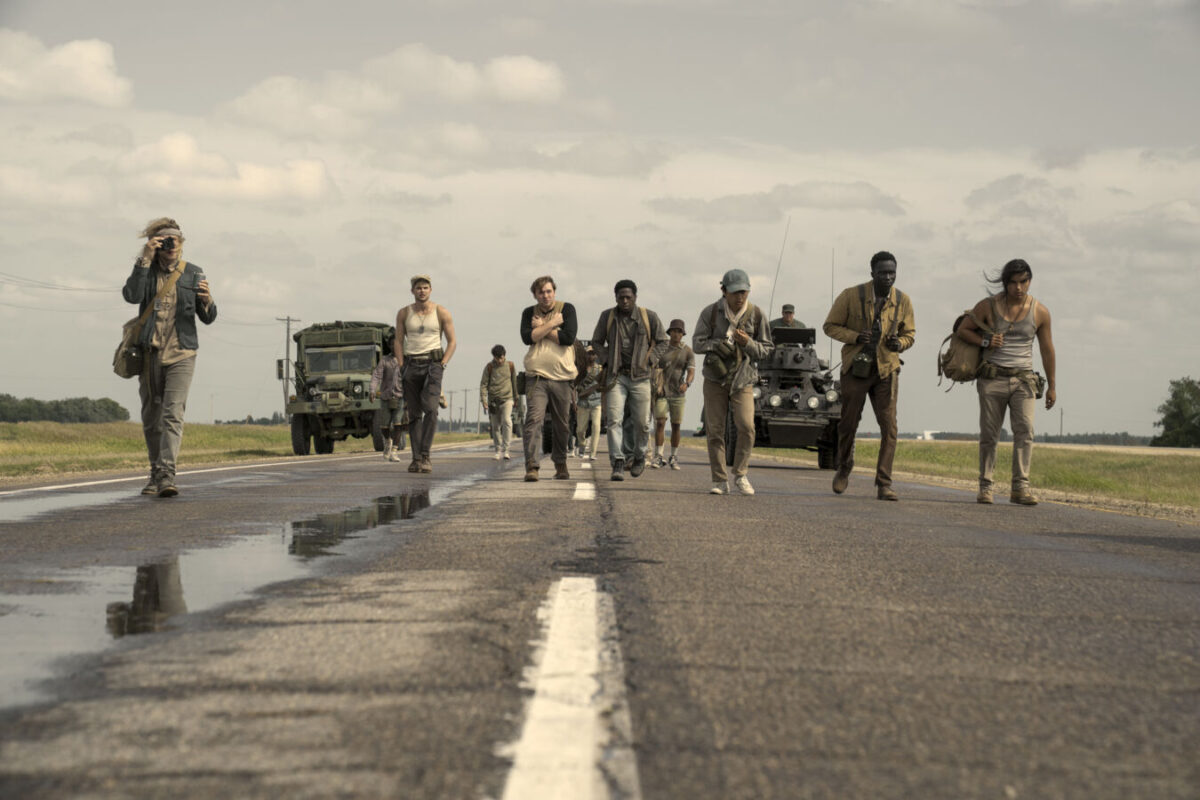
The monotonous scenery and clean cuts to harsh conditions, such as pelting rain and scorching heat, accentuate the futility of their circumstances amid minor roadblocks that extend to slower pacing in the second half of its 108-minute runtime, and the awkward placement of certain flashback sequences. Peeking through the blanket of despair, however, are bright spots that thrust the human element into focus, whether it’s little acts of kindness, good-natured ribbing, or bonding over trauma.
The best moments of The Long Walk are in the defiant, rebellious moments, where everyone’s simmering anger turns into a rallying cry of “F**k the Long Walk!”. A soul-stirring sight that packs a lot of emotional weight, it serves as a reminder to rage, rage against the dying of the light. And when the time comes? Expect emotional devastation by the boatload.
Misery loves company, and The Long Walk has no shortage of either. Hoffman and Jonsson turn in exceptional lead performances, establishing themselves as the lifeblood of a grim march, with an easy rapport complemented by a strong supporting cast. Where it further impresses is its brandishing of brutality and gentle sincerity in equal measure, giving meaning to the act of being human.
GEEK REVIEW SCORE
Summary
Heart-wrenching, sobering, and full of heart, The Long Walk pays the utmost respect to one of Stephen King’s most bleak works.
Overall
8.6/10-
Story - 8.5/10
8.5/10
-
Direction - 9/10
9/10
-
Characterisation - 8.5/10
8.5/10
-
Geek Satisfaction - 8.5/10
8.5/10

